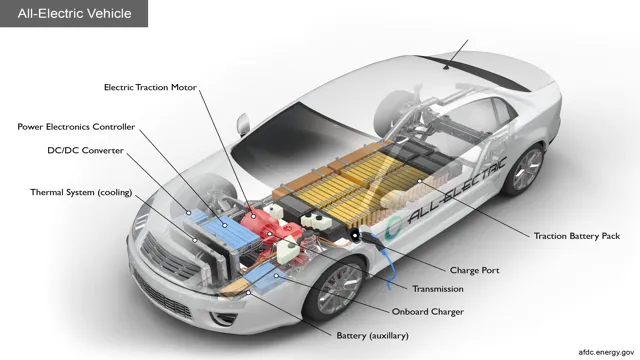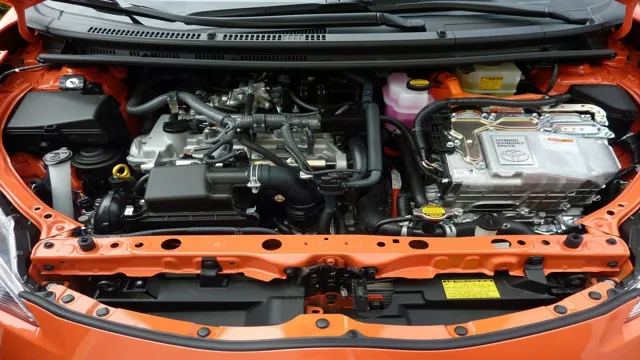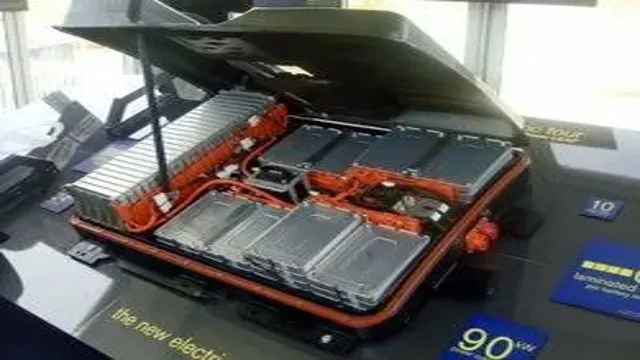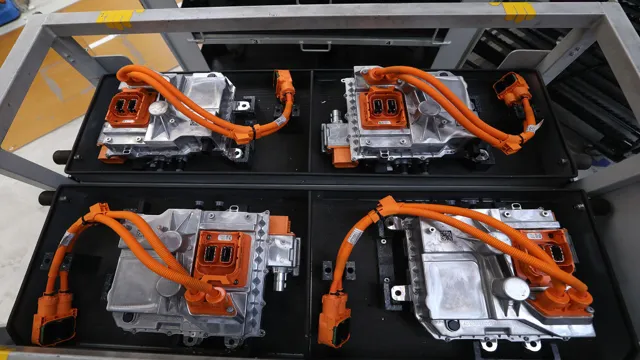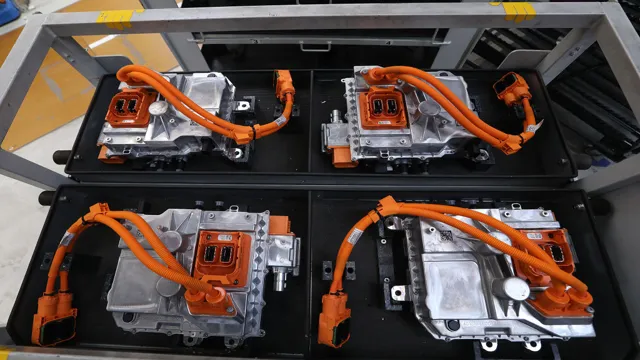Breaking Down Electric Cars: Do All of Them Run on Lithium Batteries?
Electric cars are becoming increasingly popular, and the major driving factor behind this trend is the lithium-ion battery. These batteries have revolutionized the way we power a variety of devices, and now electric cars are no exception. The use of lithium-ion batteries in electric cars is a game-changing development, enabling cars to travel longer distances on a single charge, and with faster charging times.
In this blog, we will take a closer look at electric cars and lithium batteries, discussing the benefits, the challenges, and the future of electric cars. So fasten your seatbelts and get ready for an exciting ride!
Introduction
Are all-electric cars required to have a lithium battery? While they are the most commonly used battery in electric cars, not all electric cars use a lithium battery. Some electric cars still use older battery technologies such as nickel-metal hydride (NiMH) or lead-acid batteries. However, lithium batteries have become the preferred choice due to their higher energy density and longer lifespan.
Lithium batteries are also lighter and more efficient than other battery types, allowing electric cars to have a longer range on a single charge. Thus, it’s safe to say that most modern electric cars are equipped with lithium batteries, although there are a few exceptions. Ultimately, the battery type used in an electric car depends on the manufacturer’s choice.
What are electric cars?
Electric cars are vehicles that operate using electric motors instead of gasoline or diesel engines. They are powered by rechargeable batteries rather than relying on fossil fuels. Electric cars have become increasingly popular in recent years as individuals seek out more environmentally-friendly and cost-efficient modes of transportation.
These cars have come a long way since their early days and have become quite advanced with features like regenerative braking, which captures energy lost during braking and recharges the battery. Additionally, these vehicles operate almost silently and produce no direct emissions, making them a great option for urban environments. With advancements in technology, electric cars have better ranges and charging infrastructure is expanding, making them more accessible and convenient for consumers.
Overall, electric cars are a reliable and sustainable alternative to traditional gasoline-powered vehicles that offer many benefits to individuals and the planet.
What is a lithium battery?
Lithium-ion batteries, also known as lithium batteries, have come a long way since they were first developed in the 1970s. These batteries use lithium ions to store and transfer energy, making them incredibly efficient and long-lasting compared to other types of batteries. In fact, lithium batteries can store up to three times more energy than traditional lead-acid batteries, allowing them to power everything from smartphones and laptops to electric vehicles and solar panels.
However, not all lithium batteries are created equal, and it’s important to understand the differences between types and manufacturers before choosing the right one for your needs. By doing so, you can ensure that you’re getting a high-quality battery that will last for years to come, no matter what you’re using it for.
Types of Electric Cars
Not all electric cars require a lithium battery. Lithium-ion batteries are currently the most common type of battery used in electric vehicles, but other options also exist. For example, hydrogen fuel cell cars use hydrogen as their fuel source and convert it into electricity via a chemical reaction with oxygen in the air.
Another type of electric car is the lead-acid battery electric vehicle, which is commonly used in small electric vehicles such as golf carts. However, these batteries are heavier and less efficient than lithium-ion batteries. Therefore, while lithium-ion batteries are the most common choice, electric cars can vary in the type of battery they use.
Battery Electric Cars
Battery electric cars are becoming increasingly popular as people seek more sustainable and eco-friendly transportation options. There are three main types of electric cars: battery electric vehicles, plugin hybrid electric vehicles, and hybrid electric vehicles. Battery electric vehicles, or BEVs, rely solely on the battery to power the vehicle.
They do not have an internal combustion engine, and the battery is responsible for powering all aspects of the car. Plugin hybrid electric vehicles, or PHEVs, have a battery that can be recharged by plugging into an external power source, but they also have a gasoline-powered engine that can kick in once the battery is depleted. Lastly, hybrid electric vehicles, or HEVs, have both an electric motor and a gasoline-powered engine that work together to power the vehicle.
While battery electric cars may not be suitable for everyone, they have the potential to significantly reduce our carbon footprint and help us move towards a more sustainable future.
Plug-in Hybrid Electric Cars
When it comes to electric cars, there are three main types to consider: battery electric cars, plug-in hybrid electric cars, and hybrid electric cars. Of these, plug-in hybrids offer a unique combination of electric power and gasoline backup. These vehicles use an electric motor and a battery, but also have a gasoline engine for longer journeys.
They can be charged from a regular electrical outlet, or they can recharge while driving through the regenerative braking system. For those who want to reduce their carbon emissions but also need the peace of mind that comes with a backup fuel source, a plug-in hybrid electric car may be the perfect choice. With constantly improving technology, these cars are becoming increasingly efficient and affordable.
Plus, they offer the added benefit of being able to drive purely on electric power for shorter trips, reducing your carbon footprint even further. Overall, plug-in hybrid electric cars offer a convenient and environmentally conscious solution for modern drivers.
Extended Range Electric Cars
When it comes to electric cars, there are a few different types to choose from. One type that is growing in popularity is the extended range electric car. These cars have a larger battery than traditional hybrid cars, allowing drivers to go longer distances without needing to rely on gas.
Some examples of extended range electric cars include the Chevy Volt and the BMW i It’s important to note that extended range electric cars are different from fully electric cars, which rely solely on battery power and don’t have a gas backup. Extended range electric cars can be a great choice for drivers who want the environmental benefits of an electric car while still having the flexibility to take longer trips without worrying about running out of power.
Overall, the electric car market is expanding rapidly, and there are more and more options available for drivers who want to make the switch to electric.
Do all electric cars require a lithium battery?
Do all electric cars require a lithium battery? The short answer is no. While lithium-ion batteries have become the most popular choice due to their energy density, there are alternative battery chemistries that some electric vehicles use. For example, the Nissan Leaf uses lithium-manganese batteries, while the Toyota Mirai utilizes a hydrogen fuel cell system.
Additionally, some electric vehicles, such as the Tesla Model S and X, offer different battery options with varying chemistries for consumers to choose from. However, it should be noted that lithium-ion batteries currently dominate the market due to their high performance and relatively low cost. So, while not all electric cars require a lithium battery, it is the most prevalent chemistry used in the industry.
Advantages of lithium batteries for electric cars
Lithium batteries have become the industry standard for electric cars due to their many advantages. Unlike lead-acid batteries, which have a shorter lifespan and are heavier, lithium batteries are lightweight and have a much longer lifespan. They also have a higher energy density, meaning they can store more energy in a smaller space, allowing for more range without adding extra weight to the car.
Lithium batteries are also more efficient than other types of batteries, which means they can charge faster and retain their charge for longer periods of time. However, not all electric cars require a lithium battery. Some manufacturers still use other types of batteries, such as nickel-cadmium or nickel-metal hydride, in their vehicles.
Ultimately, the choice of battery depends on the car’s intended use, cost, and environmental impact. Nonetheless, lithium batteries remain the preferred choice for electric cars due to their numerous advantages.
Alternative types of batteries for electric cars
With the rise of electric vehicles as a more eco-friendly mode of transportation, many people wonder if lithium batteries are the only option for powering them. The answer is no, there are alternative types of batteries for electric cars. One example is nickel-metal hydride (NiMH) batteries, which were widely used in the first generation of hybrid vehicles.
They have a longer lifespan than lithium batteries and are less expensive, but they are also less energy-dense and have a lower power-to-weight ratio. Another option is solid-state batteries, which are still in the development stage but have the potential to offer higher energy density and faster charging times. However, these batteries are currently expensive to manufacture and have not yet been widely commercialized.
Overall, while lithium batteries are currently the most common type of battery used in electric vehicles, there are alternative options available and under development that could potentially offer better performance and lower costs in the future.
Conclusion
In the world of electric cars, it’s undeniable that lithium batteries are a popular choice. However, not all electric cars require a lithium battery. Just like how not all superheroes wear capes, some electric cars can use other types of batteries such as nickel-metal hydride or lead-acid.
But let’s be honest, we all know that lithium-ion batteries are the Tony Stark of the electric car world – they may not be the only choice, but they sure are flashy and impressive.”
FAQs
What type of battery do electric cars use?
Most electric cars use lithium-ion batteries.
Why are lithium-ion batteries commonly used in electric cars?
Lithium-ion batteries are commonly used in electric cars due to their high energy density, long lifespan, and fast charging capabilities.
Is it possible for an electric car to use a different type of battery than lithium-ion?
Yes, it is possible for an electric car to use a different type of battery, such as nickel-metal hydride or lead-acid batteries. However, lithium-ion is currently the most popular choice.
Are all lithium-ion batteries the same in electric cars?
No, there are different types of lithium-ion batteries used in electric cars, such as nickel cobalt aluminum oxide (NCA), lithium nickel manganese cobalt oxide (NMC), and lithium iron phosphate (LFP) batteries, each with their own advantages and disadvantages.
